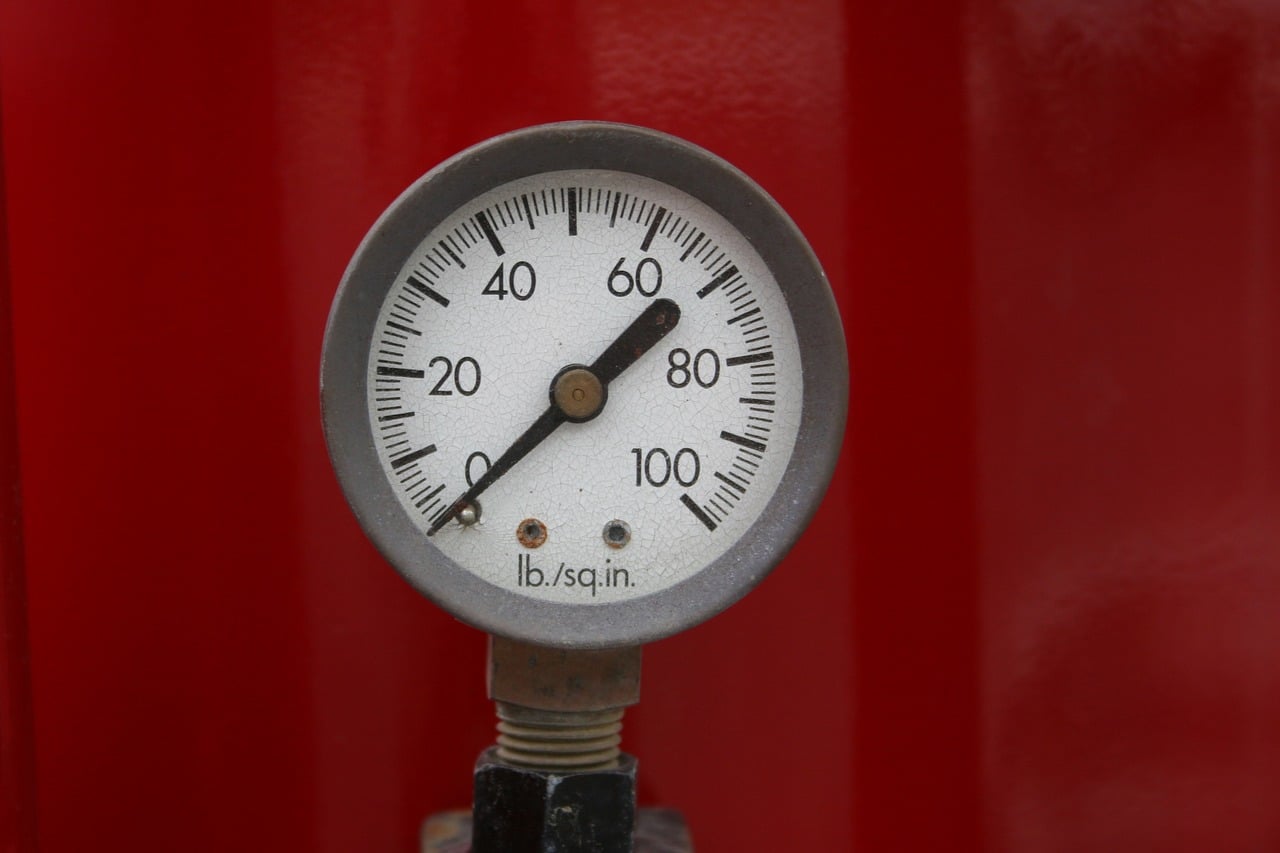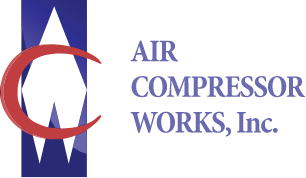Air Compressor Works
Post
My Kingdom For A Gauge
July 17, 2019

This may seem like a silly statement, but when issues arise and there is no way of knowing what is going in your air system, a gauge or three in the right location can be a lifesaver.
Many times simple items like a pressure or temperature gauge can solve long-term issues in a compressor room. Most systems do not have working gauges in the correct location.
How can you tell if your compressor is overheating if you don’t have an operating temperature gauge on the compressor? How can you tell the filter’s dirty if there is no pressure drop indicator or gauges on either side showing the inlet and outlet pressure?
Here are some logical places and gauges that you should have in your compressor room:
- Temperature gauge to show ambient room temperature. Anything below 40° F (not likely in South Florida) or above 100° F can cause operating problems.
- Glycerin filled pressure gauge at the discharge of each compressor. Do not trust the pressure gauges on the panel, even the pressure transducers can be inaccurate.
- Glycerin filled – pressure gauge at the inlet and outlet of each filter and dryer. At very least at the inlet and outlet of the filter/dryer combination.
- Install a pipeline temperature gauge at the discharge of your compressor to make sure that the cooling is working correctly. Again, many panel gauges are not accurate.
- Any water-cooled system must have temperature/pressure gauges on the inlet circuit and the return circuit. In order to understand what the system is doing, by showing the Delta P and Delta T
- 4 “ glycerin gauge on any receiver so you can clearly see it from a distance. The cost difference between a standard 2 ½” gauge and a 4”glycerin might be $50 but it is worth it to see it quickly.
- 4 “ glycerin gauge at the furthest point in the air system, or the point with the most pressure issues, to be able to quickly monitor which your system is doing.
The average compressor system of two rotary screws/wet receiver/2 filters/refrigerated air dryer in a 40,000 sq ft facility might require $400 worth of temperature and pressure gauges to tell what’s really going on in the system. A 2 ½” glycerin gauge is $30 and a 4” glycerin gauge is $60 – pipeline temperature gauges range from $30-$100. If you don’t have time to put them in have your service provider do it, but get it done.
Remember your air system is your fifth utility and you should manage it just like the others. Install the appropriate gauges as outlined above and keep an eye on them to understand issues before they get worse.
If you need some help or have a concern, call ACW at (561) 844-4559 for additional information.
Contact Us
Contact Us
Palm beach:
1956 W 9th St
Riviera Beach, FL 33404
Monday – Friday 7:30 AM - 4:30 PM
Map and Directions
Miami:
7292 NW 25th St
Doral, FL 33122
Monday – Friday 7:30 AM - 4:30 PM
Map and Directions
Phone Number:
Areas We Serve
- Miami
- Fort Lauderdale
- Hollywood
- Boca Raton
- Stuart
- Vero Beach
- Delray Beach
- West Palm Beach
- Homestead
- Key West
- Fort Pierce





